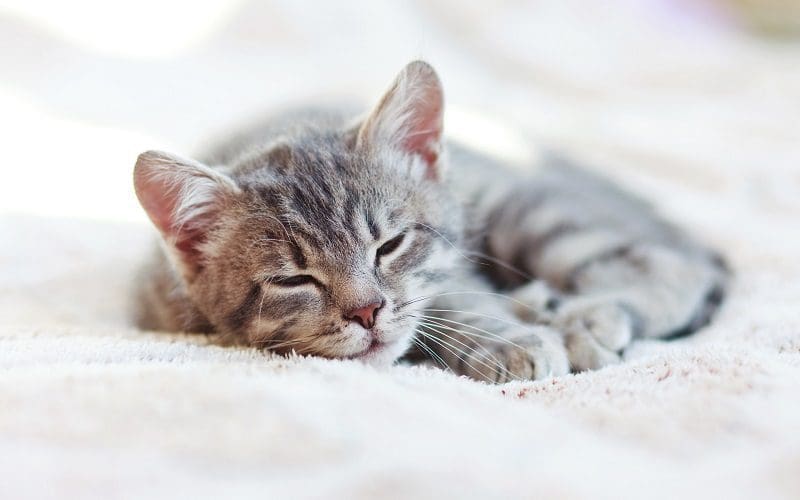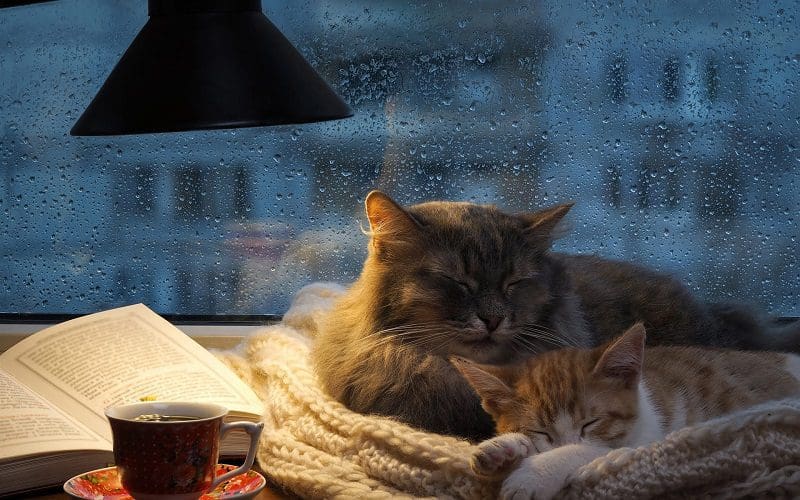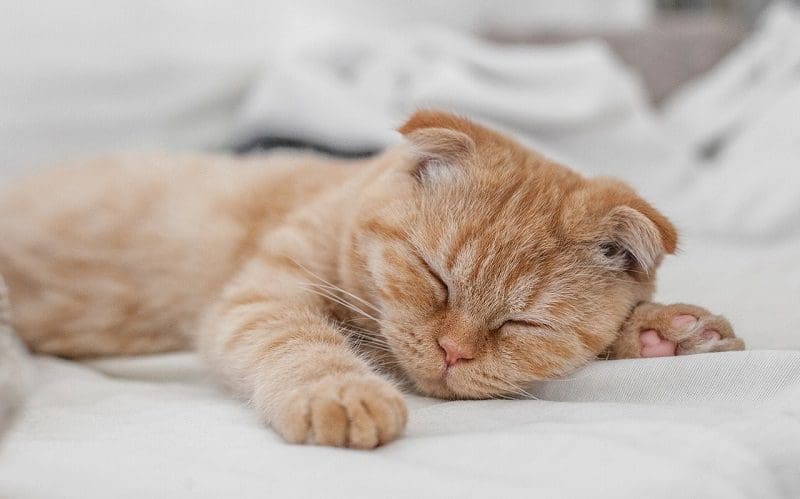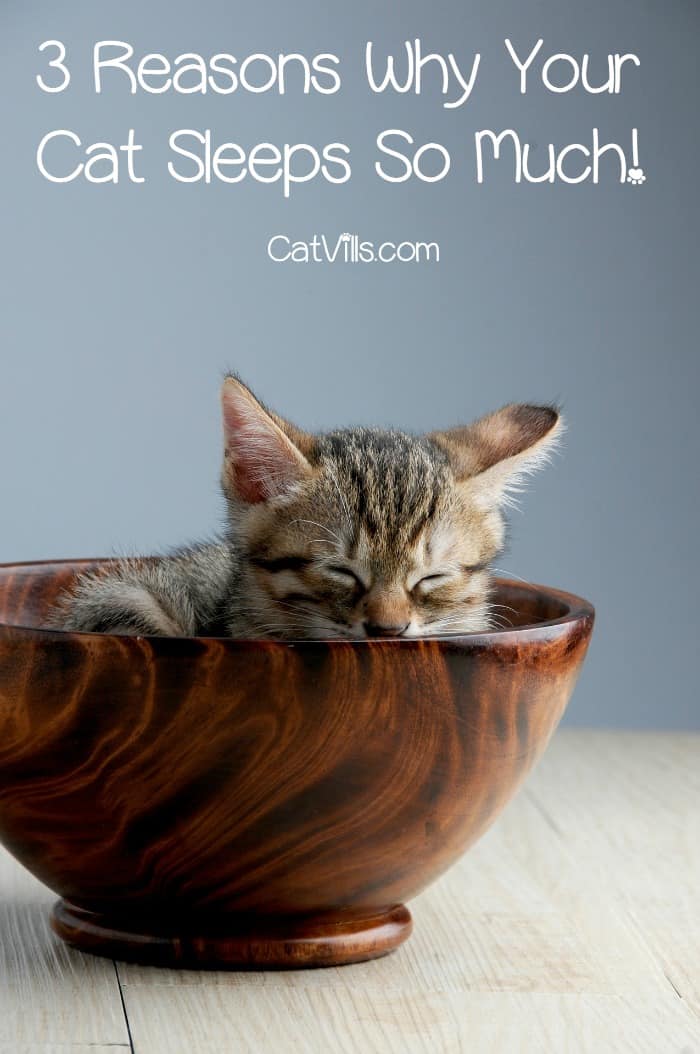Last Updated: 26 seconds ago
Ah, the life of a housecat. They are happy, loved, and regularly fed, and, let’s be serious, they tend to rule the house.
As if that weren’t enough, they also get to nap all day.
A mature cat may sleep 16–20 hours a day, and kittens sleep even more than that.
Which begs the question: Why do cats sleep so much? Read on to find out!
Understanding Why Do Cats Sleep So Much?
#1 They Need Their Energy

One reason why cats sleep so much is due to their natural instinct as predators. Cats are crepuscular animals, meaning they are most active during dawn and dusk.
Picture your cat playing with his favorite toy. He probably treats it almost as he would prey—sneaking up on it and, just when the time is right, pouncing on it for all he’s worth.
Cats never seem to fully lose their hunting instinct, and their sleep behaviors prepare their bodies for the energy they will expend while they hunt.
In the wild, cats spend a significant amount of time hunting, which requires bursts of energy and focus. After a successful hunt, they need time to rest and conserve energy for the next opportunity.
Cats have evolved to be efficient hunters, and their bodies are adapted for short bursts of intense activity followed by periods of rest and sleep.
By sleeping for extended periods throughout the day, cats are able to restore their energy levels, allowing them to be fully alert and prepared for hunting when necessary.
Cats have a higher metabolic rate than humans, which means they burn energy more quickly. Sleeping helps them conserve energy and maintain their overall health and well-being.
It also helps them regulate body temperature and supports various physiological processes, including muscle repair, growth, and immune system function.
#2 Time of Day Matters

Think of your last visit to the zoo and the behavior of big cats like lions and tigers.
Were they playing or sleeping? Unless your zoo trip took place in the evening, chances are good those big cats were resting while you were there.
Cats spend most of the daytime hours and very dark nighttime hours sleeping and are most active around dusk and dawn.
Going back to hunting behavior, during dawn and dusk, cats are able to sneak around in the shadows to stalk their prey but still have the benefit of a bit of light to guide them.
By sleeping during the day and dark night hours, cats are also able to avoid coming into contact with many of the animals that would hunt them.
Now, depending on your cat’s temperament, you may find that she is awake more during the day because she wants to visit with you.
Cats will modify their routines to accommodate their current situations. And if you and your kitty have a strong bond, she’ll do what she has to do to spend time with you!
#3 Kitty Sleep Cycles

Like humans, cats go through sleep cycles.
Unlike humans, the majority of a cat’s naps take place in a dozing state. This keeps them on guard should they be in danger while dozing (you’ll notice the way their bodies are usually positioned while sleeping enables them to spring up at a moment’s notice if necessary).
This is also why you may find your cat likes to sleep up high or in another safe spot like a cozy cat bed safely tucked in a corner.
A cat’s deep sleep cycle lasts only about 5 minutes, and they then return to the dozing cycle. During one nap, a cat goes back and forth between dozing and deep sleep.
So, if you’ve ever felt badly for accidentally waking your cat, don’t worry—he was probably just dozing!
Wrap-Up
As you know, each cat is unique; her preferences, temperament, and age play a big part in how much shut-eye she gets each day.
Hopefully, now you have a bit more insight into why cats tend to sleep away so much of the day!
Do these facts ring true for your cat? We’d love to hear from you! Tell us why you think cats sleep so much!


Dr. Linda Simon MVB MRCVS is a locum veterinary surgeon who has worked in London for the past 8 years. She graduated top of her class in small animal medicine from UCD, Dublin. She is currently a member of the Royal College of Veterinary Surgeons. Linda is the resident vet for Woman magazine and a frequent contributor to People’s Friend Magazine, the Dogzone website, Vet Help Direct and Wag! Linda also writes content for the CVS veterinary group, Vetwriter and a number of other establishments.
